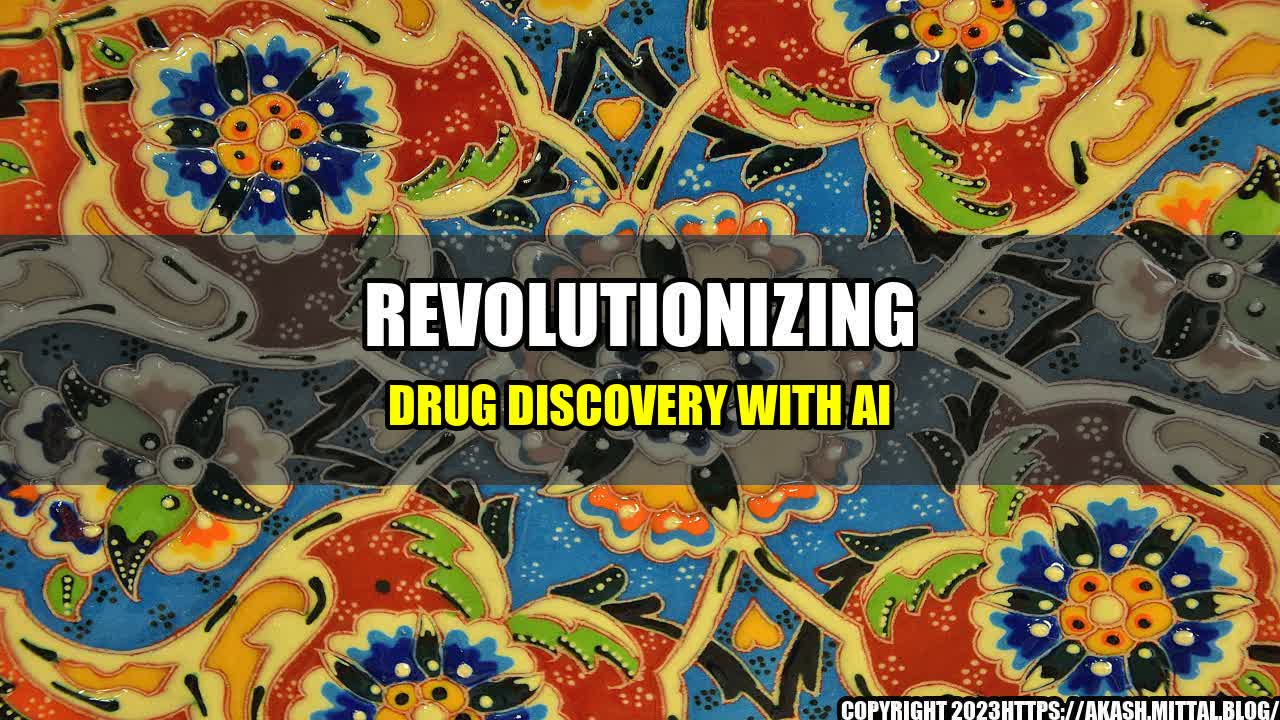Revolutionizing Drug Discovery with AI


In the world of medicine, one of the biggest challenges facing scientists and researchers today is the rise of drug-resistant infections. These are infections that have evolved to become immune to traditional treatments, rendering many antibiotics useless. The consequences of this trend are dire, with an estimated 700,000 deaths each year due to these types of infections worldwide.
One story that illustrates the severity of this issue involves a young boy named Jack, who became ill with pneumonia at the age of five. Despite numerous rounds of antibiotics, Jack's condition continued to deteriorate, and he eventually lost his life to the disease. It was a heartbreaking loss for his family, and one that highlights the urgent need for new and effective treatments.
One promising avenue for combatting drug-resistant infections is the use of artificial intelligence (AI). By leveraging the power of machine learning algorithms, scientists are able to quickly analyze vast amounts of data and identify potential new drug candidates that might otherwise go overlooked.
In fact, just recently, a team of researchers from MIT used AI to discover a new antibiotic compound that shows promise in fighting drug-resistant bacteria. The compound, which has been named halicin after the fictional AI system from the movie "2001: A Space Odyssey," was able to eliminate a variety of bacterial strains in lab tests, including those that are typically resistant to traditional antibiotics.
What makes this discovery so exciting is that halicin was not initially identified as a potential antibiotic based on traditional screening methods. Instead, the researchers used a machine learning algorithm to analyze over 107 million chemical compounds and identify those with the potential to disrupt bacterial cell membranes. From there, they selected a small pool of candidates for further testing, ultimately landing on halicin as the most promising one.
While this is just one example of how AI is being used to accelerate drug discovery, it highlights the enormous potential that this technology holds for transforming the field of medicine more broadly. In addition to identifying new antibiotics, machine learning algorithms can also be used to identify new target molecules, predict which patients are likely to respond best to certain medications, and optimize drug dosages to minimize side effects.
For patients like Jack, who lost his life to a drug-resistant infection, these advancements can't come soon enough. While there is still much work to be done before AI-powered treatments become a reality for all patients, the progress that has been made so far is nothing short of remarkable.
Curated by Team Akash.Mittal.Blog
Share on Twitter Share on LinkedIn